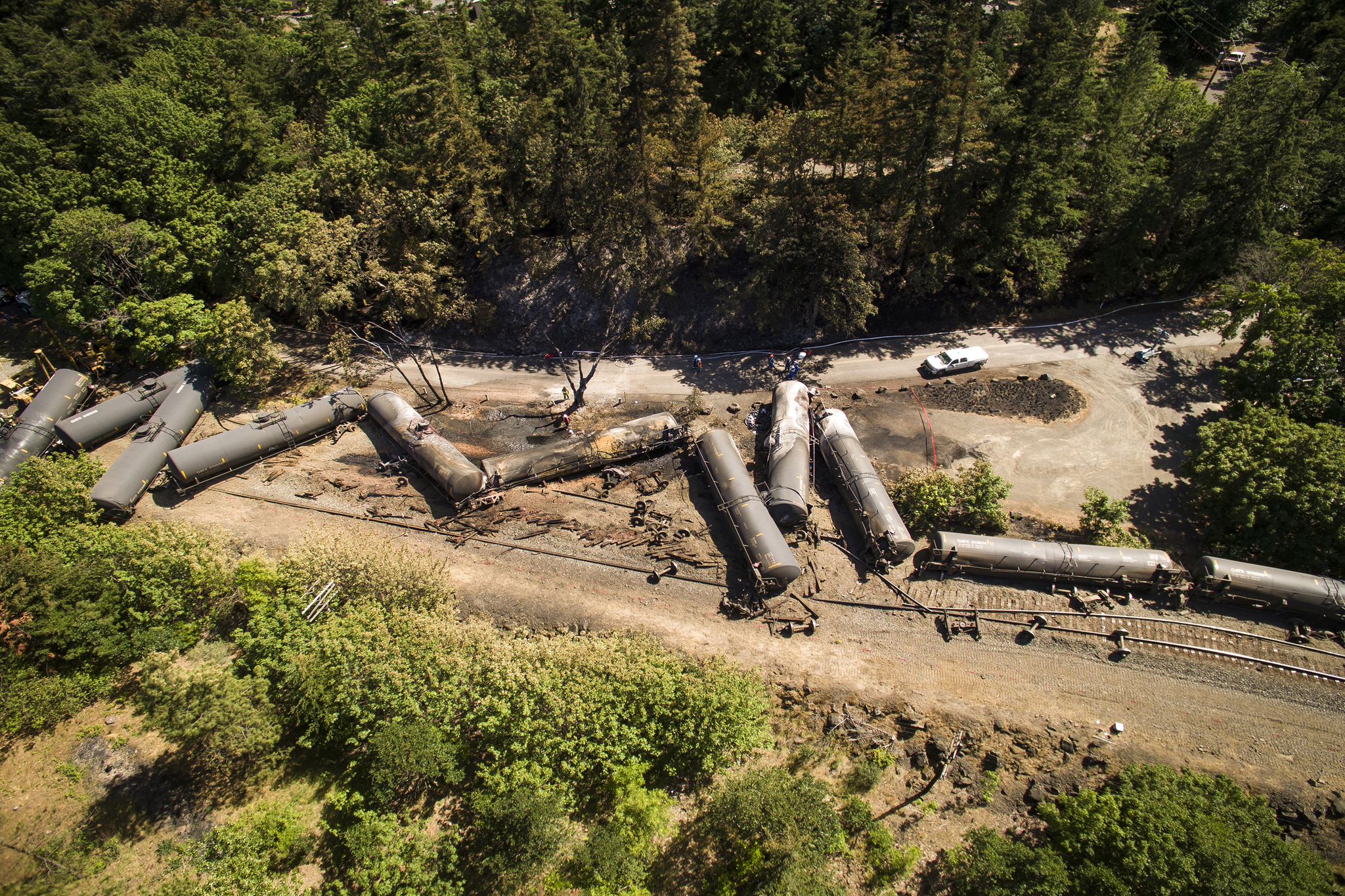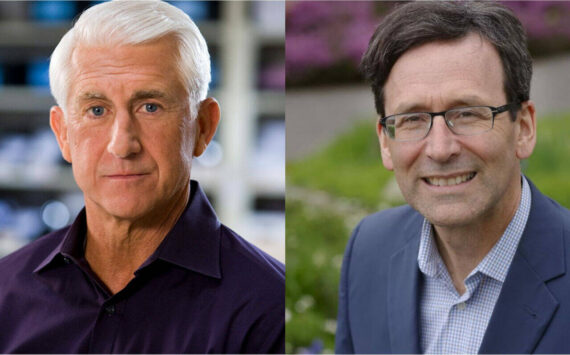Since the June 3 derailment of a crude oil-carrying train in Mosier, Ore., many, many activists and organizations and politicians have been calling for an out-and-out ban on oil trains in the Pacific Northwest.
Oregon Governor Kate Brown, for instance. The Oregon Department of Transportation. The Washington State Firefighters Association. Portland Mayor Charlie Hales, Mosier Mayor Arlene Burns, and a slew of other cities, tribal nations, and environmental groups, including the 100-plus activists who blocked the train tracks in Vancouver, Wash., last weekend. (21 were arrested).
It doesn’t take an eagle eye to spot who’s missing from this list: Gov. Jay Inslee. Washington’s governor has opted for a less-strident message: make trains safer, he asks, through safer cars, lower speed limits, and better oil spill response plans. In stopping short of a moratorium, Inslee is once again finding himself at odds with many of the state’s climate activists, who are starting to press a narrative that could prove troublesome as Inslee seeks a re-election this fall: Perhaps he’s not the “greenest governor” after all.
Pressure will continue to mount on Inslee this summer when he’ll have an opportunity to weigh in on a massive crude-oil export project in Vancouver, Washington.
Just about 70 miles west of Mosier, the Tesoro-Savage project at the Port of Vancouver could add up to five oil trains to the Columbia Gorge each day. Washington’s Energy Facility Site Evaluation Council (EFSEC) is holding its final weeks of hearings on the project beginning June 27.
After that, the question will go to Inslee. He has the authority to veto the whole thing, which is what many environmental and public health advocates are asking (and sometimes demanding) that he do. But as with the moratorium, Inslee so far has avoided taking any stong stances on the project.
“It’s unbelievable that there would even be consideration of expanding this problem,” says Columbia Riverkeeper conservation director Dan Serres. “I don’t see how any decision maker could look at what happened [in Mosier] and come to the conclusion that this project is a good idea for the state of Washington.”
On Friday afternoon, then, local climate activists plan to set up shop outside the private fundraiser that President Barack Obama is hosting for Inslee at the Washington State Convention Center, complete with protest songs, an inflatable oil train car, and “I Stand With Mosier: Ban Oil Trains” stickers they’ll hand to Inslee’s donors as they enter. Rally organizers will argue that Inslee’s administration has kept too mum on massive fossil fuel projects in the state.
“As a policy issue, it’s pretty clear what needs to be done” about oil trains, says former Mayor Mike McGinn (in short: let’s just ban them). McGinn plans to be at the rally tomorrow handing out stickers in order to “help draw attention to the issue of oil trains, and climate change generally, and to the fact that Obama and Inslee are in positions of leadership here. They can do more.”
Were Inslee to take a firmer stance against oil-by-rail, “he’d be in a strong spot with the public on this,” McGinn says. “This is an issue that has broad popular support: protecting our communities from the threat of oil trains.”
The Inslee administration says it is doing just that with its strong call for safety. “The governor sent a letter to US Secretary of Transportation Anthony Foxx asking for several safety improvements,” says Tara Lee, a spokesperson from Inslee’s office. “We are going to keep a close eye on the fed’s response to our requests as we determine what else needs to happen, both at the state and federal levels.”
And while calls for moratoriums send a clear message to rail and oil tycoons, they may not be too practical. Union Pacific announced yesterday that this week it will begin rolling its oil trains again.








